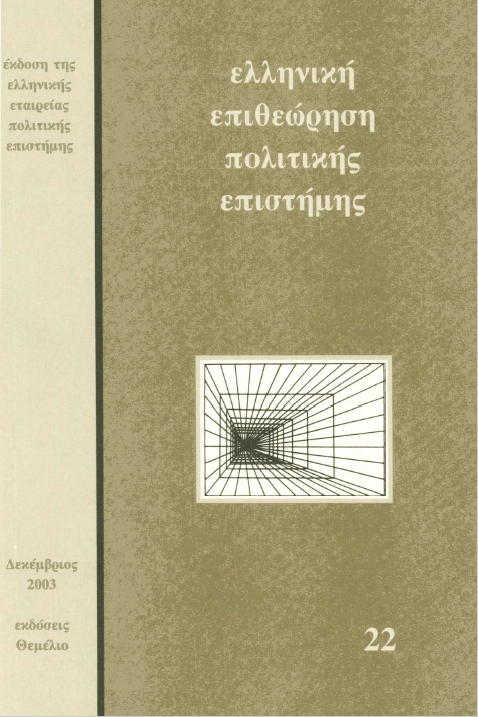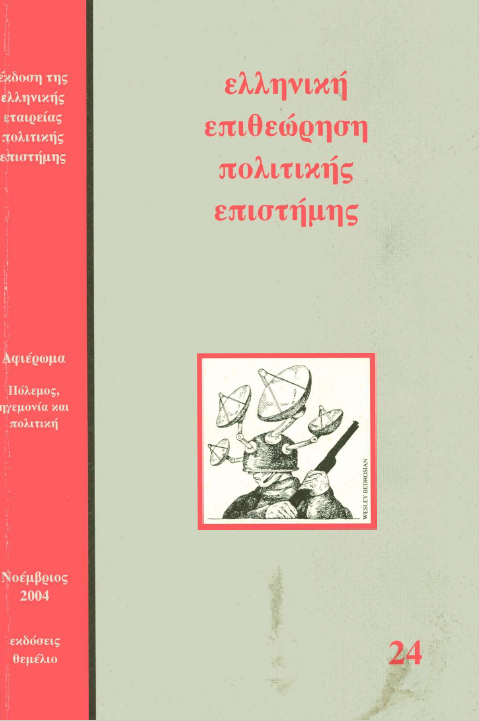Ideas, institutions, and interests in public policy: the case of European economic policy
Abstract
Linking an instrumentalist/materialist with an interpretive/affective approach to the role of ideas, this article discusses the conditions under which ideas impact on public policy, with a particular empirical focus on European economic policy and the ascent of the monetarist versus the Keynesian paradigm. The article examines the interface between ideas, the institutional framework and the interests surrounding public policy, in an effort to demonstrate the dynamic interaction between these three factors (ideas, institutions and interests). Despite the efficiency and positive sum orientation of European economic policy and integration, the political game, it is argued, as usual is still very much about «who gets what, how, and at the expense of whom»; this power dimension should not be discounted. The article posits an argument of skepticism against the triple reductionism of interests, institutions and ideas. Firstly, the voluntaristic discourse of a rationalist approach based on the alleged explanatory omnipotence of interests should be tempered by the recognition of institutional constraints and path dependencies as well as the ideational framework through which interests are self-defined and external pressures are perceived. Secondly, the neo-institutionalist «conservative» bias towards stability and continuity, a source of trouble when it comes to explaining institutional change, is offset by the innovative role of political agency combined with ideational factors. And thirdly, the interpretive and affective function of ideas is crucially circumscribed by political economy imperatives, institutional dependencies and the objectification imposed by the rationality of interests. To paraphrase an elegant aphorism, in public policy where you stand depends considerably on where you sit; on your environment depends for how long you will be sitting there.
Article Details
- How to Cite
-
Παγουλάτος Γ. (2017). Ideas, institutions, and interests in public policy: the case of European economic policy. Greek Political Science Review, 13, 45–82. https://doi.org/10.12681/hpsa.15138
- Issue
- Vol. 13 (1999)
- Section
- Articles

This work is licensed under a Creative Commons Attribution-NonCommercial-ShareAlike 4.0 International License.
Authors who publish with this journal agree to the following terms:
Authors retain copyright and grant the journal right of first publication with the work simultaneously licensed under a Creative Commons Attribution licence that allows others to share the work with an acknowledgement of the work's authorship and initial publication in this journal.
Authors are able to enter into separate, additional contractual arrangements for the non-exclusive distribution of the journal's published version of the work (e.g. post it to an institutional repository or publish it in a book), with an acknowledgement of its initial publication in this journal.
Authors are permitted and encouraged to post their work online (preferably in institutional repositories or on their website) prior to and during the submission process, as it can lead to productive exchanges, as well as earlier and greater citation of published work (See The Effect of Open Access).







